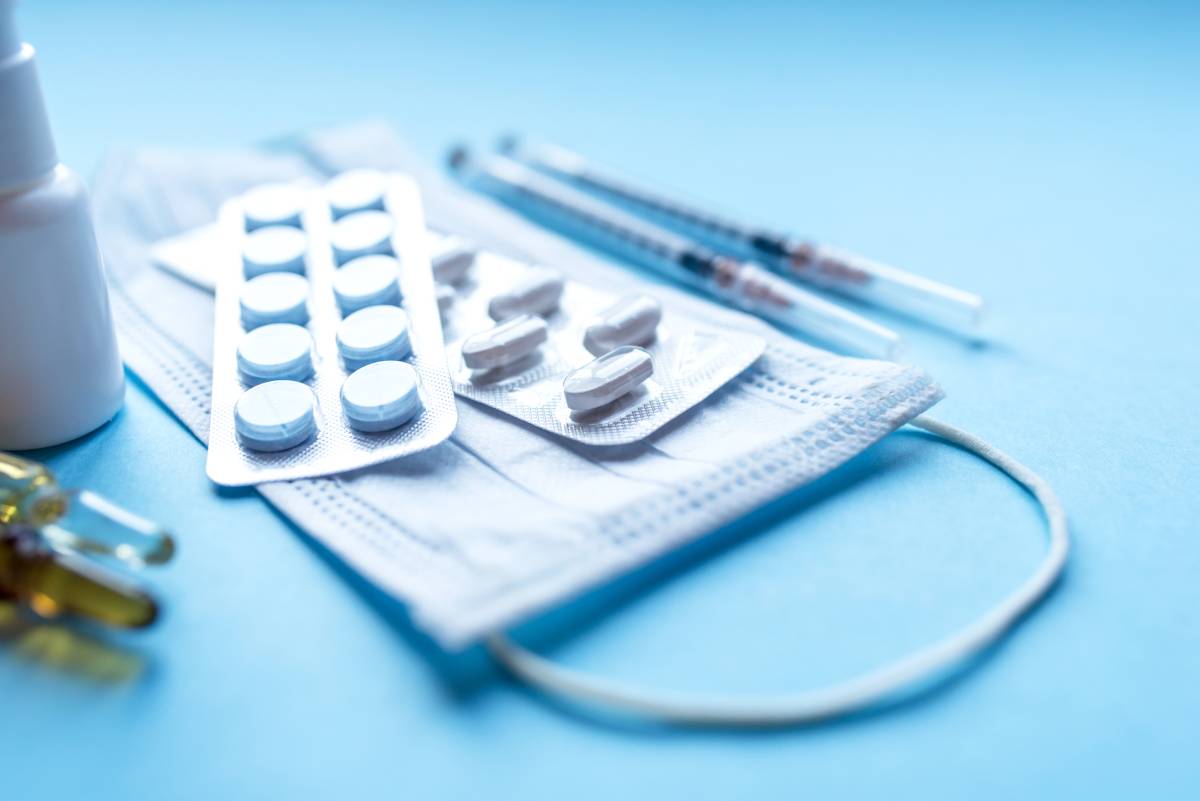Famotidine is a histamine-2 receptor antagonist [1]. While it has traditionally been used to quell gastric acid production, recent clinical data suggests that famotidine may reduce COVID-19-associated morbidity and mortality [1, 2]. It is widely available in low-cost forms, either as generic or branded medications, and its pharmacology is well-documented [Malone]. Accordingly, if famotidine is resolutely found to be an effective COVID-19 treatment, it could be incredibly useful in controlling the ongoing pandemic.
Early studies were optimistic about the efficacy of famotidine. Freedberg et al. conducted a retrospective cohort study (n = 1,620) [1]. The subjects of the study were COVID-19 patients who had been administered either 10, 20, or 40 mg doses of the drug while they were infected [1]. Overall, people who received famotidine experienced a significantly reduced risk of intubation and death compared to people who did not receive the medication, indicating that famotidine is highly effective [1]. Subsequent studies have demonstrated similar results [2, 3].
Other studies have indicated that famotidine not only reduces COVID-19-related morbidity and mortality but also decreases the prevalence of certain symptoms. Janowitz and colleagues evaluated the effect of famotidine within a small cohort on five common symptoms: fatigue, anosmia, headaches, cough, and shortness of breath [4]. Among the ten COVID-19 patients analyzed, severity scores for all five symptoms significantly improved compared to baseline levels [4]. These patients had self-administered high-doses of famotidine orally, with the most common regime consisting of 80 mg ingested three times daily for a median duration of 11 days [4]. On a related note, Hogan et al. studied the relationship between famotidine and Acute Respiratory Distress Syndrome [5]. The 110 patients, all of whom had been placed on famotidine regimes, were intubated at significantly reduced rates, compared with COVID-19 patients who did not take famotidine [5].
Despite these promising results, not all studies have indicated that famotidine is particularly effective at countering COVID-19 or its adverse events [2]. Indeed, since Freedberg and colleagues’ early experiment, more recent studies have reported variable results [2]. For instance, an anonymous, web-based survey taken by 307 otolaryngology patients already on famotidine regimens found no association between the medication and incidence of COVID-19 [6].
One explanation for this discrepancy could be the differing dosage administered across studies. Many studies, especially those conducted retrospectively, have not published the amount of famotidine taken by their subjects, while other studies set dose levels at the standard used to treat gastroesophageal reflux disease (GERD) [2]. An early case series indicated that to effectively treat COVID-19, patients must receive famotidine at higher-than-standard doses [2]. While more evidence is needed to corroborate this theory, it could help explain the difference in results reported across scientific studies.
Another question related to famotidine warranting further investigation is its mechanism of action against COVID-19. Malone and colleagues advanced a compelling theory: famotidine may block the histamine H2 receptor, which is implicated in the development of clinical COVID-19 [2]. The medication may also activate other G Protein-Coupled Receptors (GPCRs) [2]. Strong evidence supports these theories, but they warrant further investigation to be confirmed.
References
[1] D. E. Freedberg et al., “Famotidine Use Is Associated With Improved Clinical Outcomes in Hospitalized COVID-19 Patients: A Propensity Score Matched Retrospective Cohort Study,” Gastroenterology, vol. 159, no. 3, p. 1129-1131.E3, September 2020. [Online]. Available: https://doi.org/10.1053/j.gastro.2020.05.053.
[2] R. W. Malone et al., “COVID-19: Famotidine, Histamine, Mast Cells, and Mechanisms,” Frontiers in Pharmacology, Updated March 23, 2021. [Online]. Available: https://doi.org/10.3389/fphar.2021.633680.
[3] J. F. Mather, R. L. Seip, and R. G. McKay, “Impact of Famotidine Use on Clinical Outcomes of Hospitalized Patients With COVID-19,” American Journal of Gastroenterology, vol. 115, no. 10, p. 1-7, August 2020. [Online]. Available: https://doi.org/10.14309/ajg.0000000000000832.
[4] T. Janowitz et al., “Famotidine use and quantitative symptom tracking for COVID-19 in non-hospitalised patients: a case series,” Gut, vol. 69, no. 9, p. 1592-1597, June 2020. [Online]. Available: https://doi.org/10.1136/gutjnl-2020-321852.
[5] R. B. Hogan II et al., “Dual-histamine receptor blockade with cetirizine – famotidine reduces pulmonary symptoms in COVID-19 patients,” Pulmonary Pharmacology & Therapeutics, vol. 63, p. 1-7, August 2020. [Online]. Available: https://doi.org/10.1016/j.pupt.2020.101942.
[6] B. Balouch et al., “Role of Famotidine and Other Acid Reflux Medications for SARS-CoV-2: A Pilot Study,” Journal of Voice, January 2021. [Online]. Available: https://doi.org/10.1016/j.jvoice.2021.01.007.

